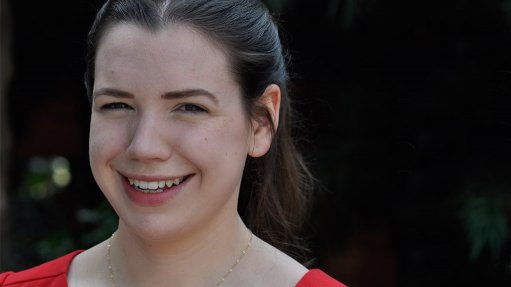
RAEng international policy adviser for Africa Meredith Ettridge
The Royal Academy of Engineering (RAEng), which is dedicated to promoting excellence in engineering in the UK and abroad, is optimistic that African engineers will respond enthusiastically to its inaugural ‘Africa Prize for Engineering Innovation’.
The initiative is described as the biggest prize devoted to engineering innovation in sub-Saharan Africa and covers all disciplines from mechanical, civil and computing to biomedical, oil and gas, mining and electronic engineering.
Entries close on Friday, May 30 and the overall winner will be named in March 2015 and will receive a £25 000 prize.
But RAEng international policy adviser for Africa Meredith Ettridge tells Engineering News Online the associated commercialisation mentorship that has been integrated into the competition’s framework potentially offers even greater value to participants than the cash prize.
Ettridge, who promoted the prize in South African in late March as part of a three-country regional visit, explains that short-listed candidates will be eligible for six months of intensive mentorship.
Candidates will be identified by September and will then be mentored in-country between October and March 2015, by individuals with a strong knowledge of business processes and product commercialization.
During the period, they will also be exposed to structured workshops covering all aspects of the commercialisation process, from the protection of intellectual property to the development of detailed business plans for the production, marketing and distribution of the product or service.
RAEng is in the process of identifying mentors, having already formally partnered with South Africa’s Council for Scientific and Industrial Research on the initiative. The prize is also supported by the Shell Centenary Scholarship Fund, Consolidated Contractors Company, ConocoPhillips and the Mo Ibrahim Foundation.
Ettridge has also met with various universities in South Africa, Tanzania and Zimbabwe to both promote the concept and to tap into possible domestic resources to support the roll-out of the competition.
She says the mentorship dimension has been tried and tested in similar competitions in the UK, where associations with educational institutions have also resulted in win-win relationships.
At the end of the mentorship period, the short-listed candidates will again be assessed and three finalists will be named. The eventual overall winner will be announced at a gala function that is likely to be hosted in Southern Africa.
The prize, Ettridge adds, aims to recognise the importance of African engineers and to stimulate innovation and entrepreneurship, while encouraging young people to become engineers by creating successful role models.
She stresses that engineers from all disciplines are invited to submit early-stage innovations with a social, economic or environmental benefit.